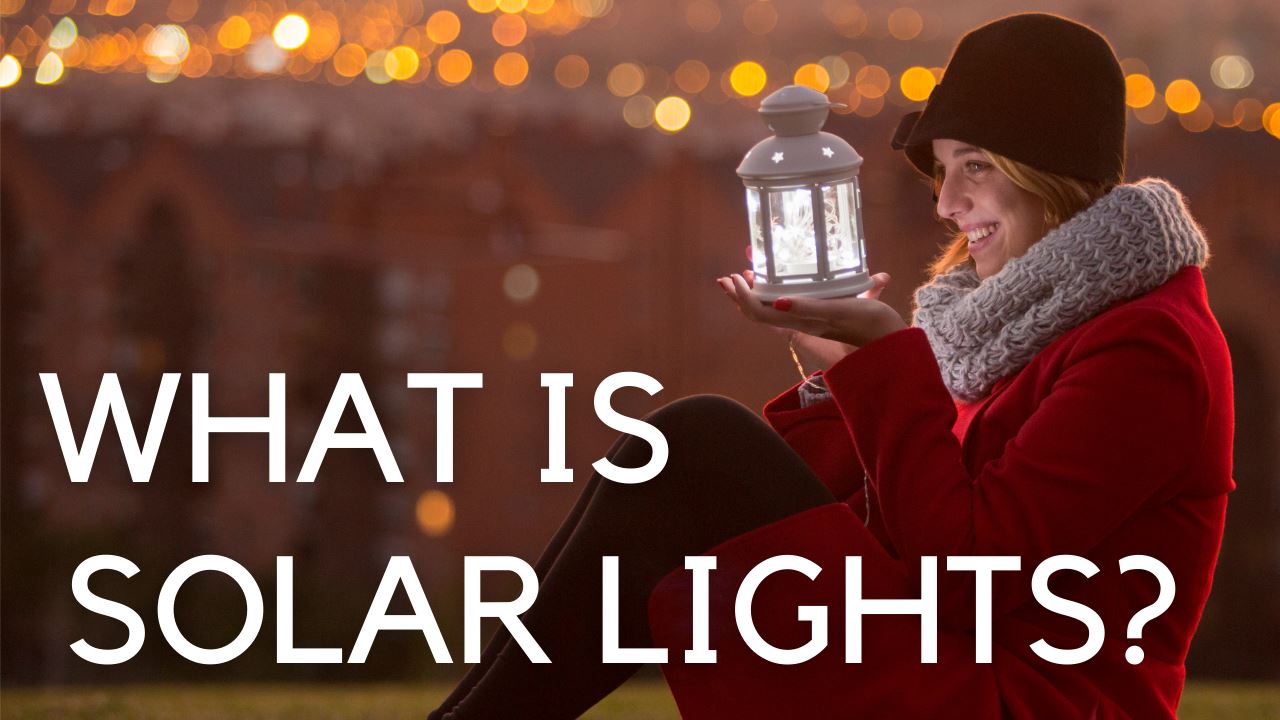
What is Solar Light?
Solar light is a process of harvesting sunlight to produce solar energy. Solar panels, photovoltaic cells, and PV modules are all utilized to harvest solar power. The PV module converts the sun's rays into electric power that is safe for consumption.
Solar panels are made up of many individual silicon cells, which can be combined into larger arrays or even used independently. A single cell has an area of about 100-200 square centimeters and generates about 0.5 watts (W) per square meter at peak output. In contrast, a typical commercial panel might have 200 W/m2 with a total installed capacity of around 250 W per square meter (W/m2). These large commercial panels often use polycrystalline rather than monocrystalline silicon.
The Benefits of Solar Lights
In addition to providing electricity, solar panels can also be used for heating water and swimming pools as a more efficient replacement for conventional electric water heaters. In the UK, it's almost a 2:1 ratio of hot water provided by solar energy than by gas when combined with a standard electric storage heater in UK.
Solar panels have many health and environmental impacts, some good such as reducing pollution, and some bad, like any invention. Solar panels are the most efficient energy source for use in a house, so we should all do everything possible to reduce carbon dioxide production and combat pollution.
Health impacts of Solar Lights
Solar panels are made using the purest silicon. Silicon is a naturally occurring element in Earths's crust. Neon, argon, and xenon are produced by compressing gases derived from unrefined crude oil or refining natural gas. The purified neon, argon, and xenon can manufacture light bulbs and electrical equipment like solar panels.
Solar panels contain up to 85% less lead than conventional light bulbs. This means that they also produce lower radiation, which is good for us as human beings.
Environmental Benefits of Solar Lights
Solar panels can be installed without threatening or destroying areas of natural habitat. The same cannot be said for fossil fuel power plants that threaten wildlife habitats and damage our environment. In addition, solar energy generates no greenhouse gases and zero-waste material. That is an excellent thing for the environment.
Solar energy systems are made of materials similar to those used in solar panels, the silicon used in PV modules is needed in minuscule amounts for many other products. That means that there is not a significant risk of any severe environmental problems resulting from the production of PV cells and panels.
Energy Efficiency with Solar Lights
Solar light technology uses photovoltaic cells to generate electrical energy from sunlight. People use solar panels to collect and convert the sun's rays into electricity which can then be used by your home or sold back to the power company through net metering.
Understanding how this works is essential for knowing whether or not you should invest in them for your own house and well-being. Solar panels themselves can be broken down into two categories, thin-film, and silicon cells.
Solar Lighting Saves You Money
Solar technology is cheaper than other alternatives, especially when compared to a regular electric bill. This means that you will be helping the environment and saving money in the long run with your solar panels.
Cost is always a concern in these times of economic hardship for many families and individuals, but if you're willing to invest in your future, then investing in solar panels should be at the top of your list. Solar lights are a great way to help you save on energy bills and reduce your carbon footprint.
No Need for Maintenance
When it comes to cost-effectiveness, solar panels come out on top. The amount of money you save in the long run by making an initial investment in them is more than worth their price tag. Plus, there's no need for any maintenance or repair work afterward since lumens lighting works perfectly fine and needs nothing else to function correctly.
Solar Lights are Safe
Solar panels are the safest form of lighting in everyday use. The material used to make them is highly resistant to damage and breakage, and they need no maintenance other than cleaning occasionally. This makes solar light technology a safe choice for families with young children or pets that conventional electrical devices could otherwise harm.
Modern solar panels are more efficient than ever with their production of energy. The new technologies mean that solar panels are more cost-effective and can be installed on your home in a matter of hours.
